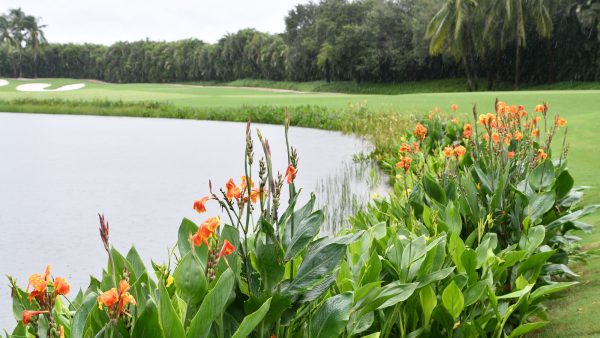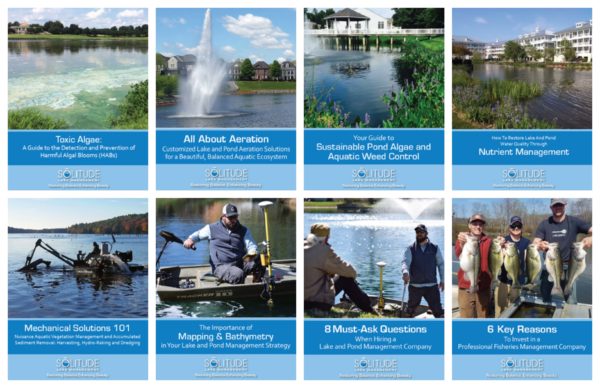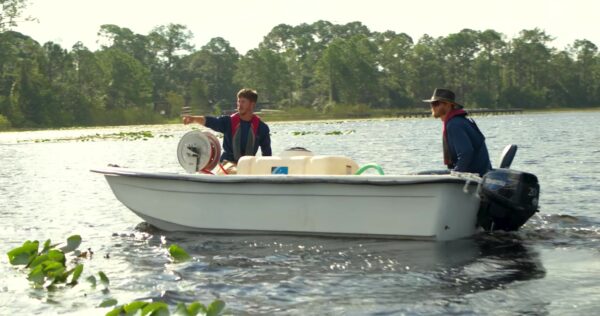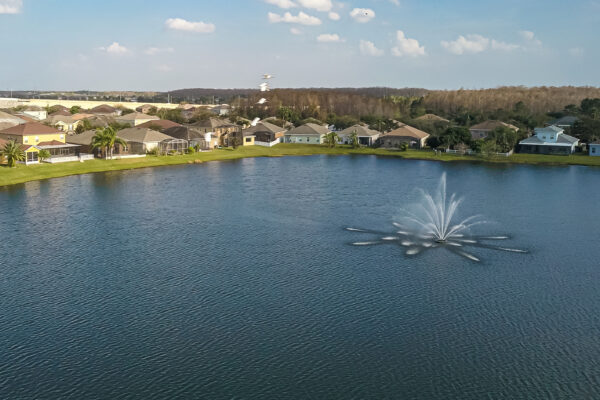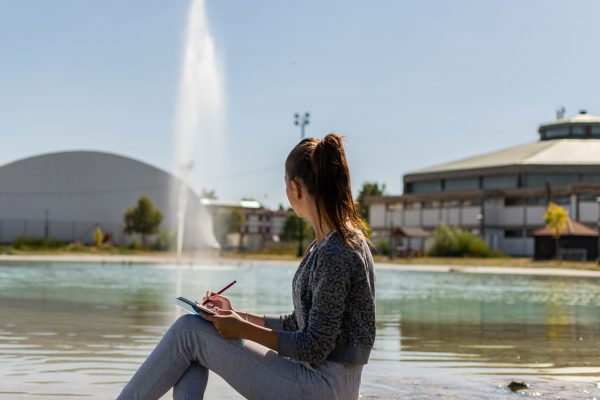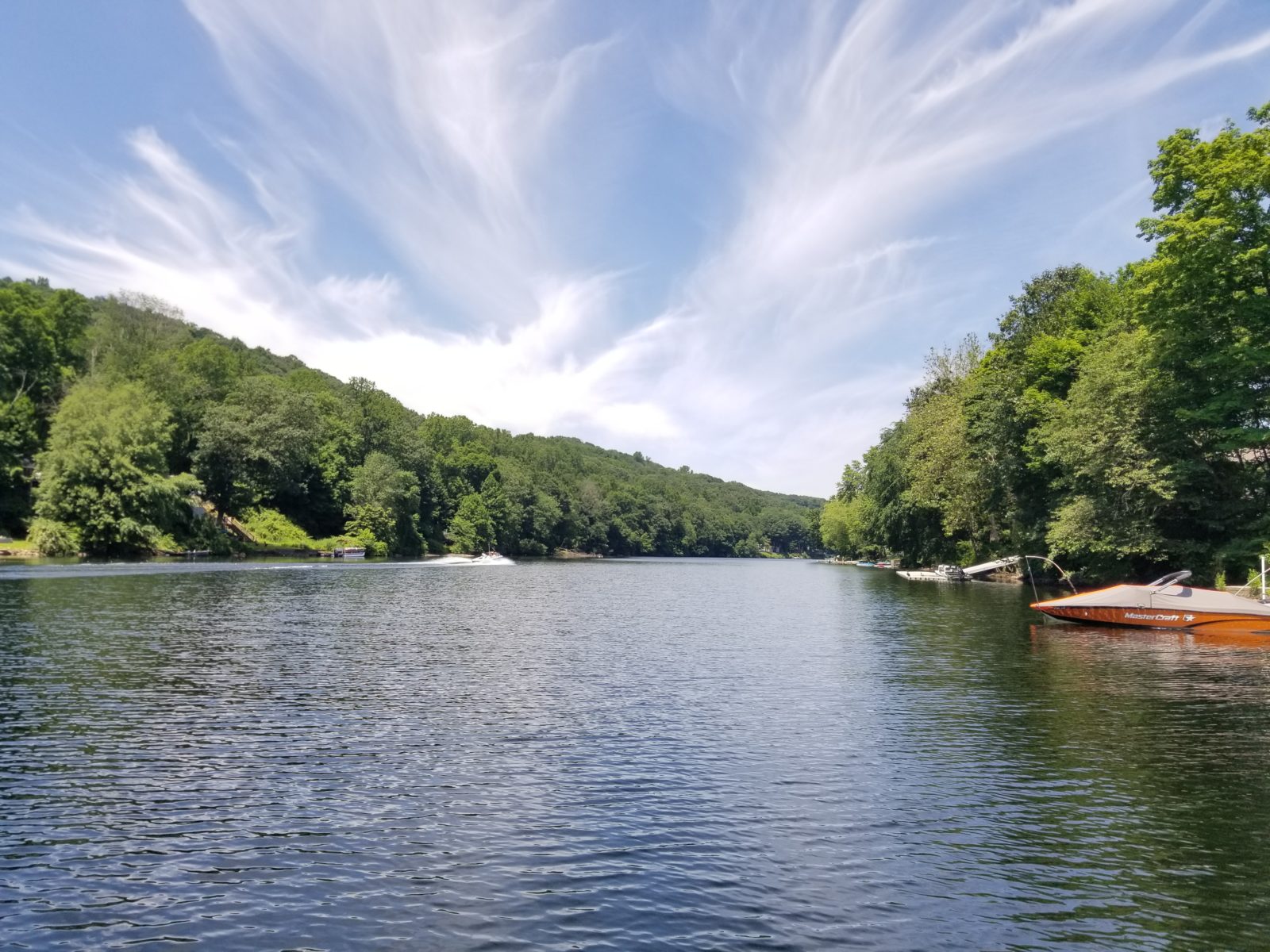By Kyle Finerfrock, Environmental Scientist
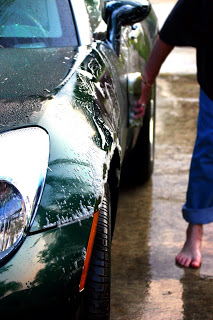 It is getting to be springtime and “Neighbor Joe” notices that this coming Saturday is going to be a warm and sunny day. Joe spends all week coming up with a plan of attack to start working on his yard and garage for this weekend. When the weekend finally arrives, he is prepared. He is going to tune up his lawn mower, spread some Weed and Feed in his yard and he is finally going to tackle that garden shed full of old paints and mystery cans of products that have been tucked away for a decade.
It is getting to be springtime and “Neighbor Joe” notices that this coming Saturday is going to be a warm and sunny day. Joe spends all week coming up with a plan of attack to start working on his yard and garage for this weekend. When the weekend finally arrives, he is prepared. He is going to tune up his lawn mower, spread some Weed and Feed in his yard and he is finally going to tackle that garden shed full of old paints and mystery cans of products that have been tucked away for a decade.
Saturday morning Joe gets an early start on the shed. He decides to “clean house” and get rid of everything he hasn’t touched in years, including old paints, oil and fertilizers. Joe notices (from the labels) that he just can’t throw all of these partially filled containers in the trash bin. He’s got a full day of tasks to do and he doesn’t have time to figure out where to take the chemicals to dispose of them properly. So, Joe decides he really only has a couple ounces of each product and feels like it won’t hurt anything to just to dump them down the storm drain.
Next, Joe tackles the lawnmower that has been sitting all winter. He starts working and immediately wants to change the oil and put fresh gas in the tank. He looks around for a place to drain the oil, but he does not have a proper container. Instead, he just takes the lawn mower to the back of his yard and dumps all the old oil and gas out onto the ground, thinking it will just filter through the soil.
With the shed and the lawnmower complete, Joe moves on to the task of fertilizing the lawn. He breaks out the spreader and the fertilizer he just purchased and gets started. Joe wants to have the greenest lawn in the neighborhood this year and decides to put twice as much product on his yard as recommended by the directions. Joe is feeling pretty productive after accomplishing so many things today, so he decides it is time to wash the car in the driveway. He squeezes a hefty portion of soap into a bucket and starts washing the car. Lots of soap and suds run into the street and the storm drain. Joe is feeling so proud that he washes his car three times!
Ending Joe’s “perfect” and productive day, he has overlooked one thing: the big rain storm coming in the middle of the night. Unknown to Joe, the rainstorm washes away most of the fertilizer he put down, it washes the gas and oil in the back of the yard into the storm drain and the stormwater pond in the back of his property. All of the little bits of chemicals from all of the containers in Joe’s shed have now found their way into the neighborhood stormwater management system as well – along with a load of phosphates from the soap used in the three washes he put on his car.
It is important to realize the importance of the individual impact on the local watershed. The excess runoff of fertilizer and fossil fuels into ponds can be very problematic for your neighborhood pond and to the watershed. Fertilizers and car wash detergent contain high levels of phosphate. Phosphates are a major contributor to excess algae and aquatic weed growth. Fossil fuels like the oil and gasoline that Joe dumped in his yard can be very harmful to a pond ecosystem. Fossil fuels can cause an oily film on the water’s surface blocking out sunlight and preventing oxygen from entering the pond. While these are problems in many ponds, they can be easily prevented. Many times lawns can be fertilized much less if the soil nutrient levels are tested before fertilizer is applied. If you need to wash your car, take it to a local car wash station. A lot of car washes have to send their waste water through the local sewer system to be treated at a water treatment plant. If you wash you car at home it is best to wash it in your yard so that the runoff doesn’t go directly into the storm drains. Household chemicals and fossil fuels can be disposed of easily and properly by contacting your local waste collection company. Remember that storm drains are for rainwater only. The health of your local pond and the entire watershed is dependent on the actions you take around your home.
Contact the experts at 888-480-5253 for all of your lake, pond and fisheries management needs.
Kyle Finerfrock is an Environmental Scientist with SOLitude Lake Management. Since 1998, SOLitude Lake Management has been committed to providing full service lake and pond management services that improve water quality, preserve natural resources, and reduce our environmental footprint. Services are available throughout the Eastern United States. Fisheries management consulting and aquatic products are available nationwide. Learn more about SOLitude Lake Management and purchase products at www.solitudelakemanagement.com.

